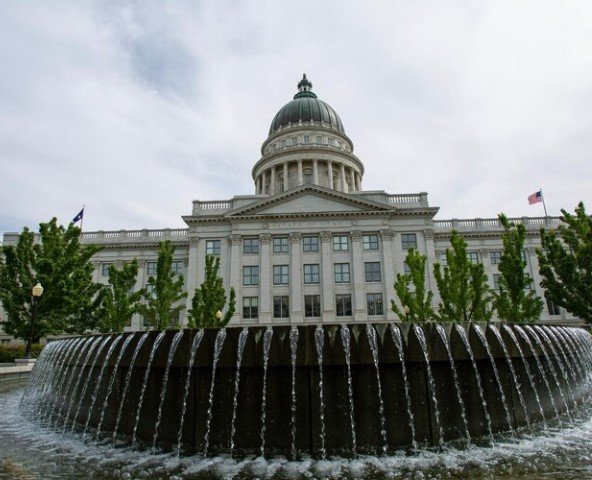Wisconsin Governor Tony Evers is pushing to give voters the power to directly influence state laws through ballot measures, a move that could pave the way for cannabis legalization in a state long resistant to reform. Announcing his intent on January 6, Evers plans to include the proposal in his 2025-27 biennial budget, challenging the Republican-controlled legislature to give the people a say in policies where lawmakers have stalled.
Breaking the Deadlock on Cannabis Reform
Wisconsin stands out as one of the last eight states without a medical cannabis program, a fact that has frustrated advocates for years. Despite consistent public support, the state’s legislative gridlock has kept cannabis reform off the table. According to a 2024 Marquette Law School poll, 86% of registered voters in Wisconsin favor legalizing medical cannabis, with 63% supporting adult-use legalization.
Governor Evers has consistently included cannabis legalization in his budget proposals, only to see the efforts quashed by the Republican-controlled legislature. While he has expressed a willingness to compromise on a limited medical cannabis program, partisan clashes have prevented even minimal progress. A Republican-backed medical cannabis bill collapsed last year due to disagreements over implementation, including whether to allow state-run dispensaries.
“GOP lawmakers have long ignored the will of the people,” Evers said in a statement. “This proposal is about ensuring the people of Wisconsin have the power to shape laws that directly impact their lives.”

Citizen Ballot Measures: What’s on the Table?
Evers’ plan introduces a statewide binding referendum process, enabling citizens to collect signatures to propose laws or constitutional amendments and vote on existing laws. This system would align Wisconsin with 26 other states that allow direct citizen participation in lawmaking.
If enacted, this could be a game-changer for issues like:
- Cannabis legalization: Allowing voters to bypass legislative bottlenecks.
- Abortion rights: Overturning Wisconsin’s 19th-century abortion ban.
- Gun control: Implementing universal background checks, a measure widely supported in polls.
- Healthcare: Expanding Medicaid by accepting federal funds.
While popular among voters, these measures face a steep uphill climb. The state’s Republican-led legislature has historically resisted proposals that would dilute their control, even gaveling out of a special session on abortion reform in 2022 without debate.
Wisconsin’s Gerrymander Problem
Underlying these political battles is Wisconsin’s heavily gerrymandered political map, which has entrenched Republican majorities in the legislature despite Democrats winning statewide offices. For example, while Evers won reelection as governor in 2022 by a 3.4% margin, Republicans secured two-thirds majorities in both the state Assembly and Senate.
This disparity has allowed legislative leaders like Assembly Speaker Robin Vos to exert outsized influence, blocking popular measures like medical cannabis reform despite bipartisan public support.
Senate President Mary Felzkowski, a Republican and past sponsor of medical cannabis bills, acknowledged the internal conflicts stalling progress. “There’s really one person that has seemed to be an obstacle to the medical marijuana bill passing,” she said in December, referring to Vos.
The Path Forward: Challenges and Opportunities
Even with strong public backing, Evers’ proposal faces daunting hurdles. After the governor submits his budget, it must pass through the Joint Committee on Finance, a 16-member body controlled by Republicans. Historically, the committee has stripped similar proposals from Evers’ budgets, and there’s little indication that this year will be different.
Still, advocates see hope in the attention the governor’s plan is drawing to cannabis reform and other key issues. Evers has consistently framed cannabis legalization as a matter of fairness, pointing out that neighboring states like Illinois and Michigan have already embraced legalization, benefiting economically and socially.
The governor’s office also emphasized the broader implications of a binding referendum process. “This isn’t just about cannabis or abortion,” a spokesperson said. “It’s about ensuring that Wisconsin voters have a direct voice in shaping the laws that govern them.”
Will Republican Lawmakers Listen?
The Republican response to Evers’ latest proposal remains to be seen. Speaker Vos and Senate Majority Leader Devin LeMahieu have not yet commented publicly, but their past actions suggest resistance is likely. However, with public opinion overwhelmingly in favor of many of the issues on the table, lawmakers may face increasing pressure to act—or risk losing support in future elections.
For now, Evers is doubling down on his efforts to shift the conversation. “The will of the people should be the law of the land,” he wrote in a statement. “It’s time to stop ignoring Wisconsin voters.”
Whether this bold move will be enough to break the stalemate remains uncertain. One thing is clear, though: Wisconsin’s voters are paying attention, and they want their voices heard.
David Johnson is a respected writer known for his expertise in crafting compelling articles about cannabis. With a passion for exploring the intersection of cannabis, health, and wellness, he sheds light on the therapeutic properties and potential uses of this versatile plant. David’s in-depth analysis and thought-provoking commentary offer readers a deeper understanding of the evolving landscape of cannabis legislation, consumption methods, and industry trends.








